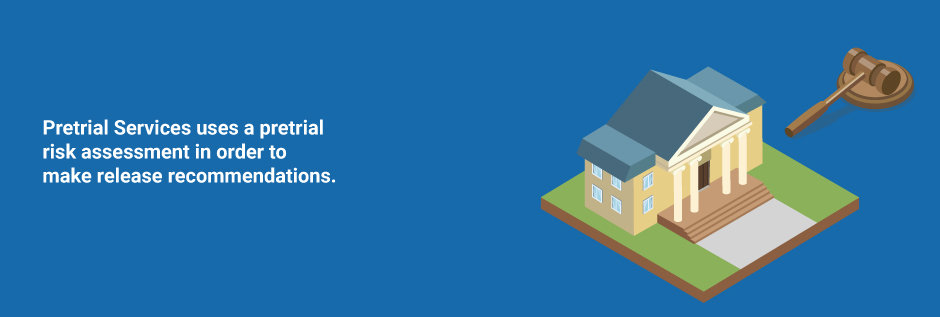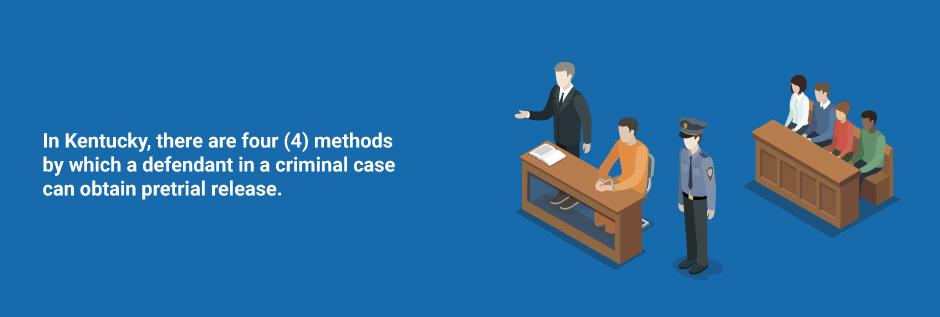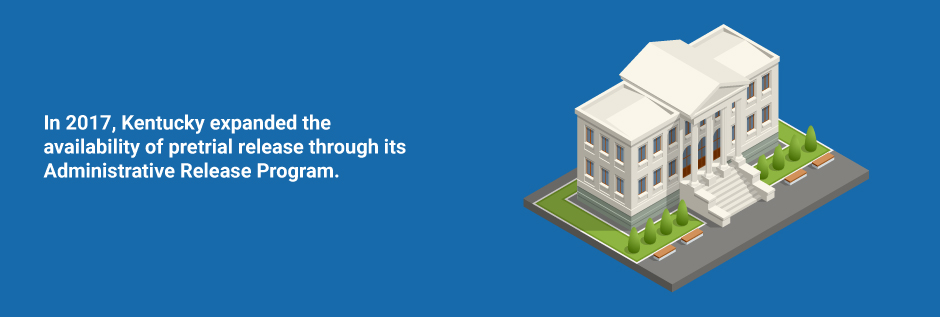If your loved one has been arrested, knowing what to do next can be daunting. For most people, this arrest will be their first encounter with the criminal justice system. Understanding what to do will help you feel more in control — and make a plan for securing release.
According to a Lexington criminal defense lawyer, Kentucky is a leader in instituting and managing a statewide pretrial services program. Yet the process can still be challenging for anyone unfamiliar with it, particularly when it comes to understanding pretrial release. That is why it is vital for anyone facing the possibility of incarceration to learn as much as they can about pretrial services and release in Kentucky.
What Are Pretrial Services?
In Kentucky, a state agency administers a pretrial release program. Pretrial Services uses a pretrial risk assessment in order to make release recommendations. Under Kentucky law, a pretrial risk assessment is “an objective, research-based, validated assessment tool that measures a defendant’s risk of flight and risk of anticipated criminal conduct while on pretrial release pending adjudication.”
Pretrial Services operates throughout the Commonwealth of Kentucky. In addition to providing pretrial risk assessments, once defendants are released prior to trial, the agency supervises defendants by monitoring any conditions placed upon them by the court.
The way that Pretrial Services works is relatively straightforward. When a person is arrested in Kentucky, they are typically transported by a law enforcement officer to a local jail. After being booked into jail, they will be contacted by a Pretrial Officer, who will ask them to consent to a pretrial interview. These interviews are voluntary in Kentucky, and all information gained as a result of the interview is confidential.
However, the information gathered during a pretrial interview and risk assessment will be used to make a recommendation to a judge about a pretrial release. The interview will ask questions about topics such as the defendant’s name, address and length of residence, ties to the community, employment, education, and criminal history.
Based on the interview and the defendant’s criminal history, the Pretrial Officer will conduct a risk assessment of two factors: (1) the defendant’s likelihood to appear in court and (2) the defendant’s likelihood to not commit further crimes. Within 24 hours of a defendant being booked into jail, the Pretrial Officer will present the information gathered to a judge and make a release recommendation.
How Can a Defendant Be Released Prior to Trial in Kentucky?
In Kentucky, there are four (4) methods by which a defendant in a criminal case can obtain pretrial release. Under Kentucky Rule of Criminal Procedure 4.04, pretrial release can be authorized if based on either one or a combination of the following:
- Personal recognizance: also known as ROR or OR, this requires the signature of the defendant, a promise to appear in court and to follow any conditions imposed by the Court;
- Unsecured bail bond: also known as an unsecured release, this requires the defendant to sign, promise to appear and follow any conditions imposed by the Court. In addition, an uncollected money amount is attached to this type of release. If the defendant fails to appear or abide by the conditions, it could lead to a forfeiture of this amount that the defendant would be required to pay;
- Nonfinancial conditions: also known as third-party surety release, this requires a third party to sign with the defendant. This person will usually be required to own property, which may be subject to forfeiture by the Court if the defendant does not show up for court or follow the conditions of release; or
- Executed bail bond: this may be cash, property, or a percentage of the bail amount. If the conditions of bail are not met, the bail amount may be forfeited.
For an executed bail bond, there are additional requirements that must be followed. An experienced Lexington criminal defense lawyer can explain these conditions. Importantly, Kentucky abolished for-profit bail bonding in 1976, so utilizing a bail bondsman or a private commercial bond are not options.
In all cases other than administrative release (described below), a judge will make a release decision based on a risk assessment conducted by the Pretrial Officer. The release decision will then be provided to the jail, and in most cases, the defendant will have the option to be released.
The Administrative Release Program Expands Pretrial Release for Certain Defendants
In 2017, Kentucky expanded the availability of pretrial release through its Administrative Release Program. Through this program, anyone charged with a non-violent, non-sexual misdemeanor crime will have their risk level assessed by a Pretrial Services Officer using a PSA risk assessment to determine their flight risk and anticipated criminal conduct.
The assessment will result in a score between 2 and 12. Anyone with a score of between 2 and 5 is considered low risk. A person with a score of 6 to 9 is a moderate risk, while a person with a score of 10 or higher is considered high risk.
Under the Administrative Release Program, defendants who are assessed between 2 and 7 are eligible for automatic pretrial release on their own recognizance. Defendants can be released even before their first court appearance. However, certain people are not eligible for this program. Excluded individuals include:
- Those charged with contempt of court;
- Those charged with violations of probation or conditional discharge;
- Those who have allegedly violated a condition of release;
- Those charged with a violation of a protective order;
- Those charged with a DUI 1st offense with injuries, accident, or any aggravated circumstances other than refusals;
- Those charged with a DUI 2nd offense or greater;
- Those charged with driving on a DUI suspended license;
- Those who have previously failed to appear on the charge;
- Those who have been charged with bail jumping; and
- Those who decline the pretrial services interview.
Local jurisdictions may expand eligible crimes to include non-violent, non-sexual Class D felony offenses (other than Fugitive from Justice charges), as well as including defendants with a risk score of 8 or 9. Any defendant who is not eligible for release under this program must undergo judicial review and be subject to conditions of release as ordered by the court.
How a Lexington Criminal Defense Lawyer Can Help
If you have been charged with a crime in Kentucky, the Baldani Law Group can help. Our team of experienced Lexington criminal defense lawyers is dedicated to advocating for our clients, from the initial arrest through the final resolution of the case.
With substantial experience representing clients throughout the Commonwealth, we are highly skilled at helping people like you get the best possible outcome for their case. Contact us today by phone at 859-259-0727 or online to schedule a consultation with a Lexington criminal defense lawyer.




